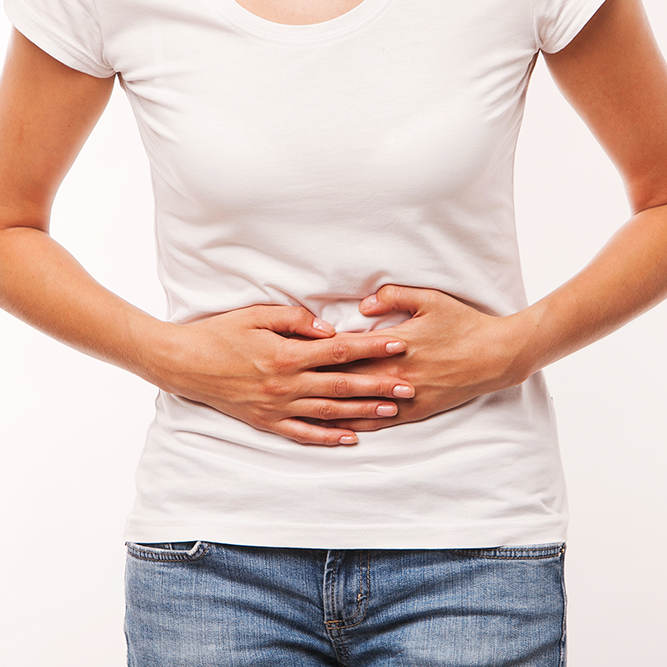Diverticulitis FAQ
What is diverticulitis?
Diverticulitis is the disease that occurs when the colon, or large intestine, becomes inflamed, swollen or infected, specifically within the diverticulum, an abnormal pouch in the intestinal colon wall. (The presence of multiple abnormal pouches in the large intestine is called diverticulosis.) Diverticulitis affects the digestive system when bacteria become trapped in a single pouch in the colon.
Who is susceptible?
In the United States, 60-90% of elderly people develop diverticulosis (the presence, not infection or inflammation, of multiple abnormal pouches in the colon). However, most of these people never experience symptoms or may experience constipation at the worst. Eating a diet high in fiber helps prevent or reduce symptoms of diverticular disease.
What are diverticulitis symptoms?
Stomach pain is the most common symptom experienced by sufferers of diverticulitis. The discomfort is usually located in the lower left stomach area. If the diverticula has become infected, more severe symptoms may occur similar to a severe stomach flu: nausea, vomiting, diarrhea, constipation, fever, chills, loss of appetite, and ultimately, weight loss.
Is it serious?
The severity of diverticulitis depends on whether or not the diverticula becomes infected, how far the infection extends, and if there are any complications. If symptoms become severe, it’s wise to consult a doctor for testing.
Complicated diverticulitis
How will I know if I have diverticulitis?
If you’re experiencing pain in your lower left abdomen or any of the other symptoms of an infected diverticulum which typically increase as the day goes on, you should visit your doctor for testing. Your doctor may prescribe a blood test, x-ray, CT scan or colonoscopy to look for infection.
What causes diverticulitis?
Unfortunately, no one knows exactly why abnormal pouches (diverticula) appear along the wall of the large intestine (colon). However, lack of dietary fiber is widely accepted as at least one of the main reasons.
How do diverticula occur?
When high pressure builds inside the colon, small pouches form at weak spots along the intestinal wall, experts believe. Irritable bowel syndrome (IBS) and other spastic movements of the colon can also cause diverticula to develop.
Do I need surgery for diverticulitis?
The vast majority of people with diverticulitis or diverticulosis never need surgery. However, if you have symptoms of diverticulitis that recur and cause increasing discomfort and inconvenience, you should talk to your surgeon about treatment options.
When is surgery recommended for diverticulitis?
The good news is that even if you have a major flare-up of diverticulitis, even to the point of hospitalization, there’s an 80% chance you’ll go on to live a normal life without another episode like that one. You will want to make a point to eat a high-fiber diet, but otherwise, you will most likely be fine.
However, once you experience a second or third serious episode of diverticulitis, the chance drastically increases that your infection will actually become life threatening. This is when you will want to consider an operation. The laparoscopic procedure will remove the bacteria causing the infection so future emergencies can be prevented.
Is laparoscopic surgery for diverticulitis safe?
Laparoscopic removal of sigmoid diverticulitis is remarkable safe and effective – even routine. The scenario is even better when we choose to perform the surgery preemptively rather than waiting for your body to revolt and say, “Now!” At Newton-Wellesley Surgeons, we have performed thousands of colon operations to remove diseased segments of the colon and prevent diverticulitis. At last count, Dr. Gryska had performed laparascopic resection of the colon for diverticulitis for over 675 patients.
I’m in major pain due to diverticulitis. What do I do?
Painful and complicated diverticulitis requires hospitalization and sometimes urgent surgery. We usually try to administer antibiotics first and avoid surgery during an infection.
What’s the recovery time for laparoscopic resection of the colon for diverticulitis?
The recovery time for a laparoscopic procedure to treat diverticulitis is much shorter than for open surgery. Patients typically stay in the hospital after laparoscopic colon surgery for 3-4 days as opposed to 8-12 days for open surgery. After release from the hospital, you’ll be able to return to normal activity very quickly.

